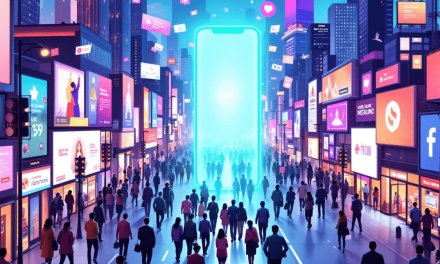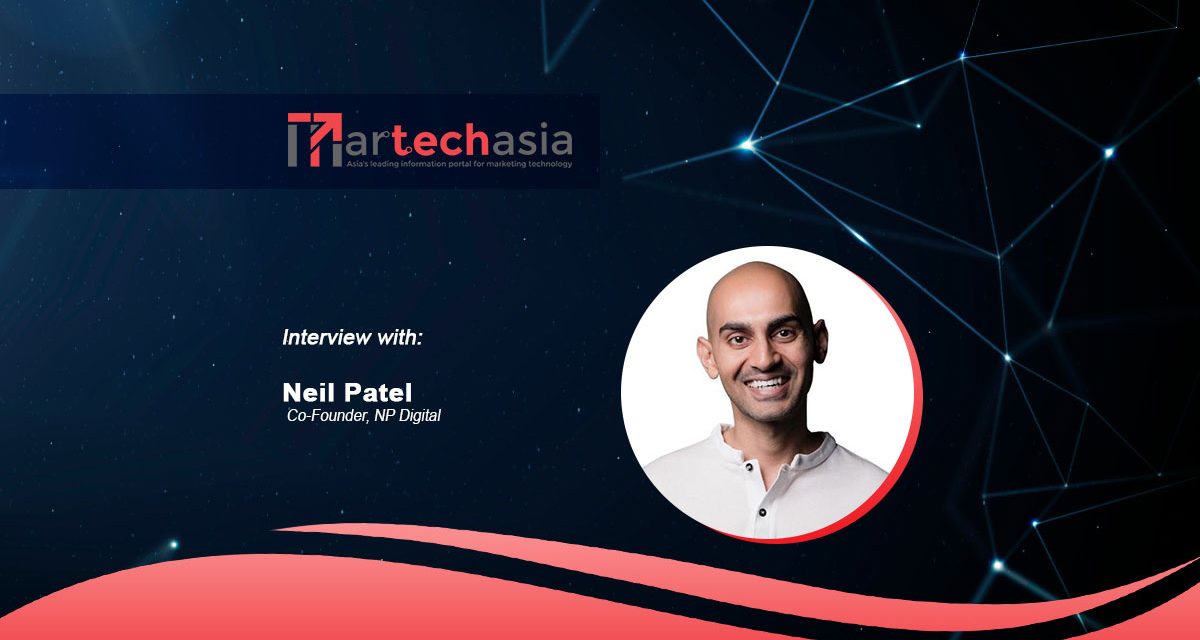The convergence of technology and marketing is arguably most strident with the injection of AI into digital, search and social media marketing.
Today, AI stands out at the forefront of the martech evolution, particularly with savvy marketers looking to leverage AI to shape the future of digital marketing and SEO.
To better understand this trend and the best ways to engage with generative AI – while avoiding the pitfalls – in marketing, MartechAsia looked for some answers from Neil Patel, Co-Founder, NP Digital.
How is AI revolutionising SEO and digital marketing?
Neil Patel (NP): The biggest way SEO is being reshaped by AI today is through the rise of new platforms people are using to search. It’s not just Google anymore — people are searching on platforms like Facebook, Instagram, TikTok, and even AI tools like ChatGPT and Perplexity.

With these platforms integrating more AI capabilities, it’s crucial for marketers to optimise their content for all of them. That means ensuring your product, service, or brand is easily discoverable across social media, AI platforms, and search engines alike.
How can brands in Asia Pacific leverage generative AI to improve content creation and SEO performance?
NP: Generative AI is proving to be a game-changer for SEO, especially when it comes to the research and ideation phase. Although a lot of the content generated by AI at the moment is mediocre on its own, it’s incredibly useful for speeding up the brainstorming process.
Brands can use it to quickly gather insights, identify trends, and outline ideas. Then, a human writer can step in to refine the content and make it truly valuable. In this way, AI acts as a tool to boost efficiency while ensuring the final output still meets high-quality standards.
What role do you see hyper-personalisation, voice technologies and other digital innovations playing in marketing?
NP: Voice search is increasingly powered by AI, and to make the most of it, brands need to leverage schema markup on their websites. Since voice search pulls information directly from the web, optimising for AI through elements like brand mentions and reviews is key. These factors help ensure your content is more relevant and more likely to surface when users search via voice, which relies heavily on AI.
When it comes to hyper-personalisation, Amazon is a great example of how AI can be used to personalise experiences in a way that feels helpful, not intrusive. The key is to use AI-driven personalisation to add value without crossing the line into feeling “creepy.” If your approach genuinely enhances the customer experience, it’s going to be a win for your brand.
How do you foresee the future of digital marketing unfolding in 2025 and beyond?
NP: Looking ahead to 2025 and beyond, digital marketing is going to be heavily influenced by AI and automation. We’re already seeing the impact, but it’s only going to grow.
AI will play an even bigger role in content creation, personalisation, and customer engagement. Marketers will rely more on generative AI to streamline ideation, research, and even execution, allowing them to focus more on strategy and creativity.
Hyper-personalisation will become standard practice, with brands using data to tailor experiences in real time across multiple platforms. The trick will be finding that balance between personalisation and privacy—brands need to be helpful without being intrusive.
Voice search and conversational AI will also continue to rise. By 2025, we’ll see more people interacting with brands through voice-activated devices and AI-powered assistants like ChatGPT. This means optimising for AI-driven search will be essential, as brands will need to ensure their content is discoverable not just on Google, but across all platforms that incorporate AI.
Finally, the shift toward privacy and data protection is something marketers will have to adapt to. With the growing emphasis on user privacy, marketers will need to rely on first-party data and focus on building trust with their audiences. The future of digital marketing will be about using technology in a way that enhances the customer experience while respecting their privacy.


















